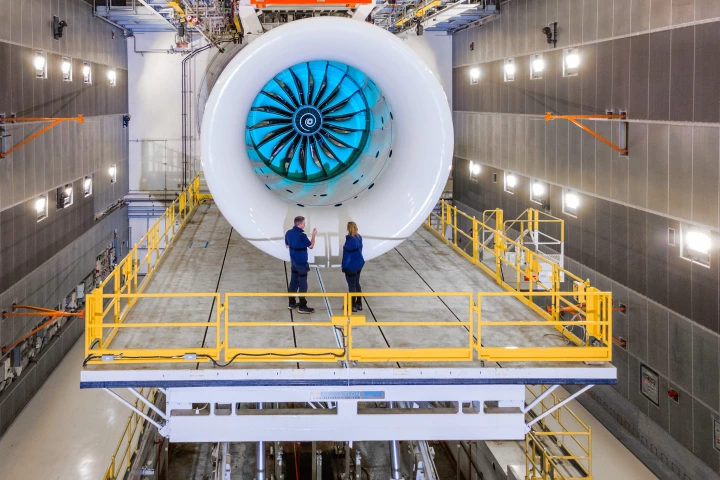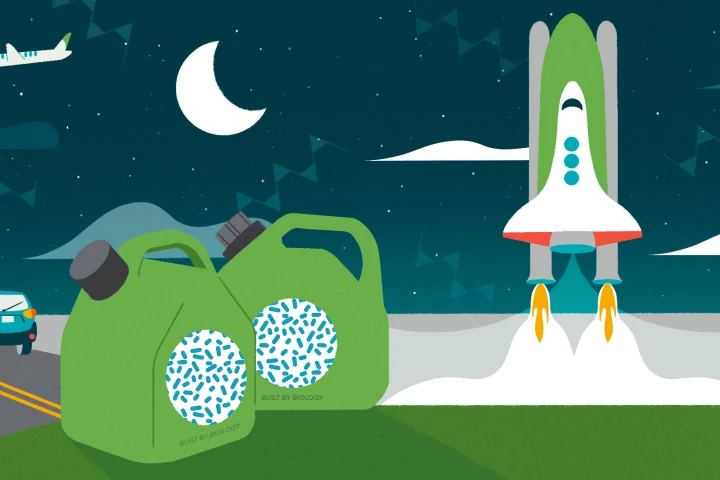Jet fuel
-
A simple, cheap pretreatment promises to radically cut the price of sustainable aviation fuel (SAF) made from waste wood biomass – potentially making it cost-competitive with fossil-based jet fuel, while cutting down emissions by up to 80%.
-
Rolls-Royce has taken a major green step, announcing that not only has its giant UltraFan demo jet engine been run at full power on 100% Sustainable Aviation Fuel (SAF), but tests have proven all its current civilian engines are compatible with 100% SAF.
-
Taking carbon dioxide, water and sunlight as its only inputs, this solar thermal tower in Spain produces carbon-neutral replacement versions of diesel and jet fuel. It's a pilot plant, proving a new all-in-one sustainable fuel production process.
-
As effective as fossil fuels may be, their impact on the planet cannot be overstated. Now researchers at Berkeley Lab have coaxed bacteria into directly producing a new biofuel with an energy density significantly higher than jet fuel.
-
Airbus, in partnership with CFM International (a joint company of GE and Safran Aircraft Engines), is developing an A380 flying testbed called the ZEROe Demonstrator to examine how hydrogen combustion can be used to power turbofan jet engines.
-
The shift to sustainable fuels in the aerospace sector passed another milestone last week when a United Airlines 737 MAX 8 airliner took to the skies with one of its two LEAP-1B engines running on 100-percent Sustainable Aviation Fuel (SAF).
-
Two years ago we first heard about the AB5 JetQuad, a jet-powered VTOL (vertical take-off and landing) drone. Well, it's time to meet its new-and-improved successor, the AB6. Among other things, it has an estimated top speed of 250 mph.
-
A new chemical treatment developed by scientists at Washington State University could help chip away at our plastic pollution problem, by turning the most commonly used plastic into jet fuel components within one hour.
-
Commonly used to make a wide variety of items, low-density polyethylene can be recycled into new plastic, but there's much more waste than recycling facilities can currently handle. With that in mind, scientists have now devised a method of converting the material into something else – jet fuel.
-
It was back in 2011 that we first heard how Virgin Atlantic Airways was planning to use an eco-friendly aviation fuel made from captured steel mill waste gases. A successful test flight followed in 2016, and the fuel has now been utilized in a commercial flight for the first time.
-
British Airways has announced plans to create a set of waste plants that turn regular household waste into jet fuel for its fleet. The plan, currently being assessed in collaboration with renewable fuels company Velocys, is part of a program designed to cut fleet-wide emissions in half by 2050.
-
Alaska Airlines has flown a number of commercial passengers across the United States, fueled by woody biomass.
Load More











